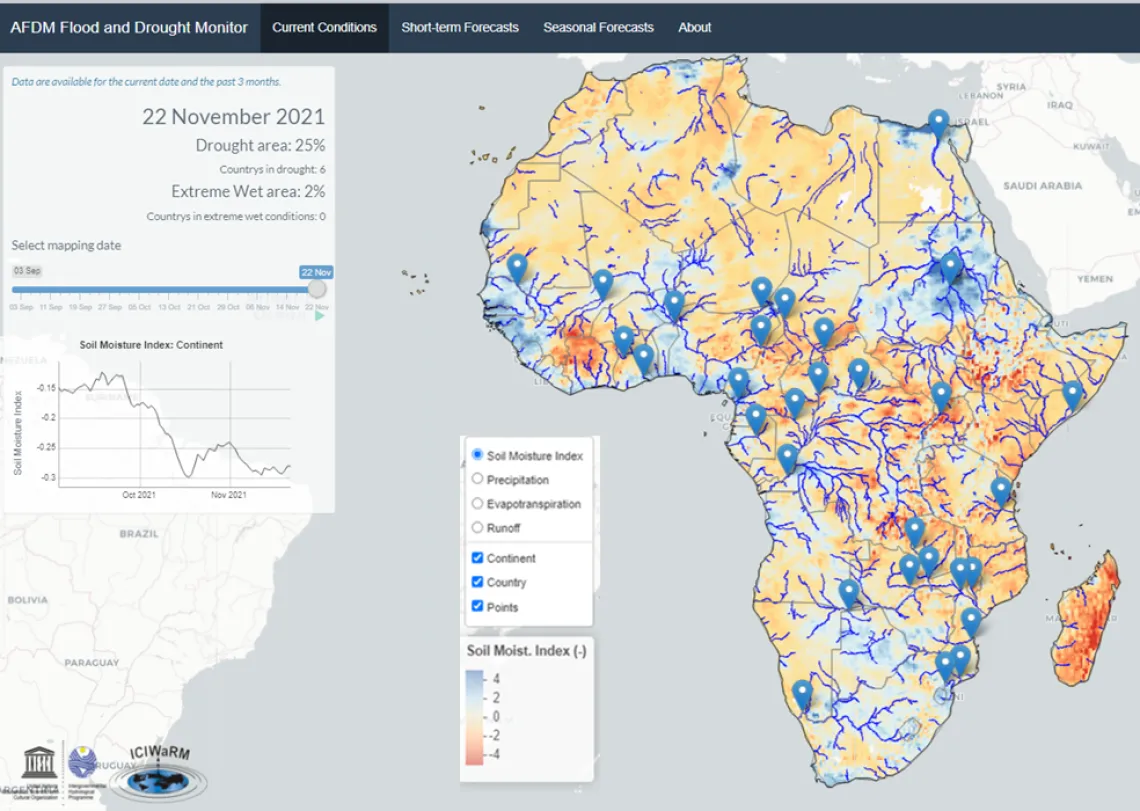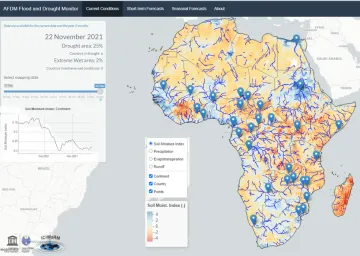Higher Resolution African Flood and Drought Monitor Now On Line

African Flood and Drought Monitor Nov 2021 showing soil moisture index.
stream.princeton.edu
The African Flood and Drought Monitor (AFDM) provides hydrological information and derived flood and drought indices in near real-time and as forecasts, to provide useful information to various stakeholders to help in decision making on risk reduction. The forecasting capabilities include short-term forecasts up to seven days in advance focused on flood risk, and seasonal drought forecasts up to six months in advance focused on drought and water resources.

African Flood and Drought Monitor Nov 2021 showing soil moisture index.
stream.princeton.edu
The AFDM had been running at a coarse 25km resolution since it was first developed in 2008, using legacy climate datasets, and an out-of-date version of the hydrological model and web interface. Several improvements have been implemented in the AFDM over the past two years, including updating the core global data and hydrological models underlying the system, increasing the spatial resolution from 25km to 5km, and implementing various improvements to the underlying hydrological models, including the development of regionalized model parameters and use of a high-definition vector streamflow routing model, and to the forecast approaches. These improvements have significantly improved the utility of the data and improved the skill of the model estimates when compared to available observational data.
The AFDM was developed by Princeton University with support from UNESCO IHP and ICIWaRM. Justin Sheffield of the University of Southampton, UK is currently the lead developer. The AFDM, along with country-level monitors for Namibia, Zimbabwe, Mozambique, Malawi and South Africa can be accessed at http://hydrology.soton.ac.uk/apps/.
